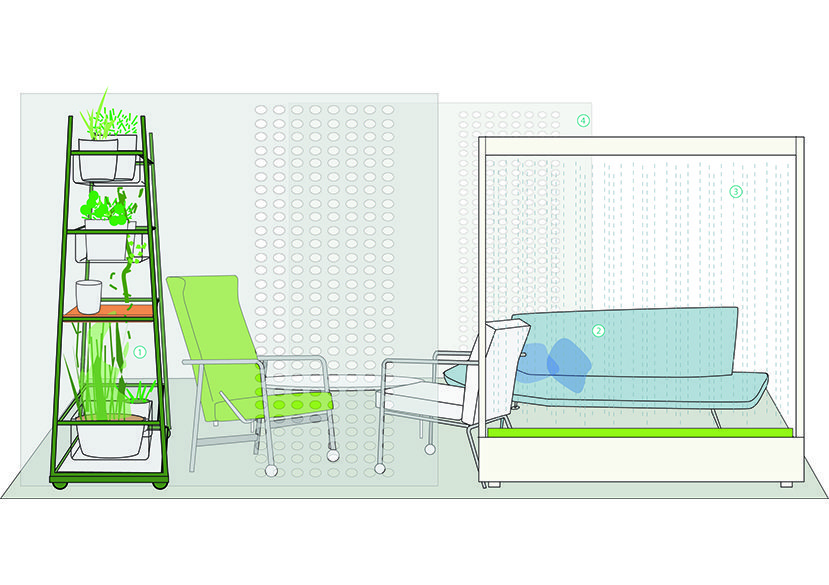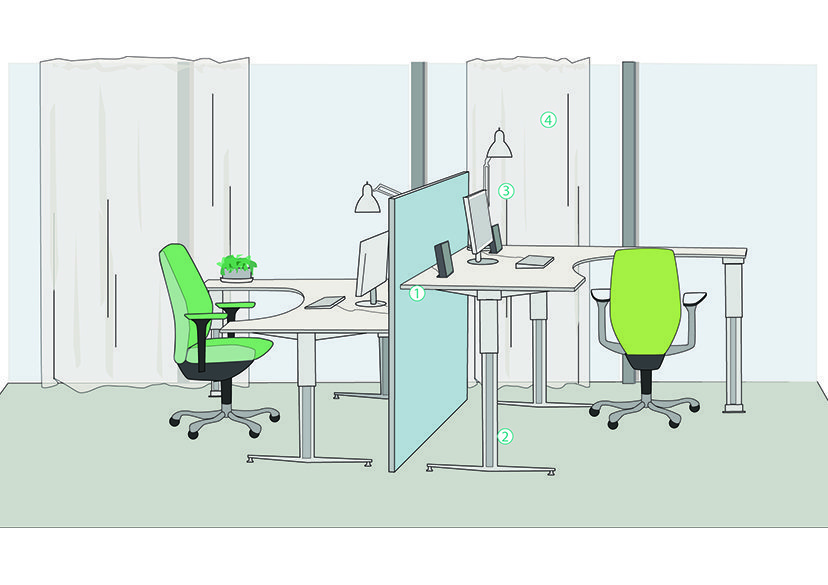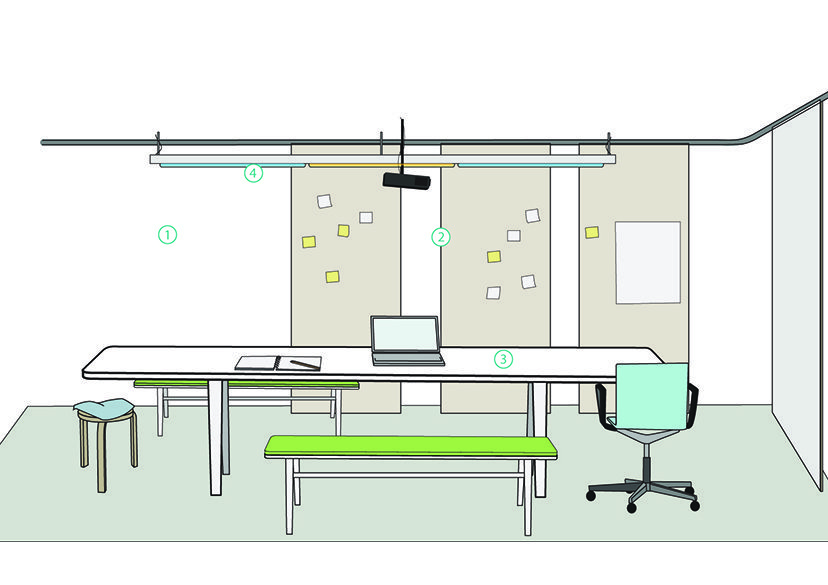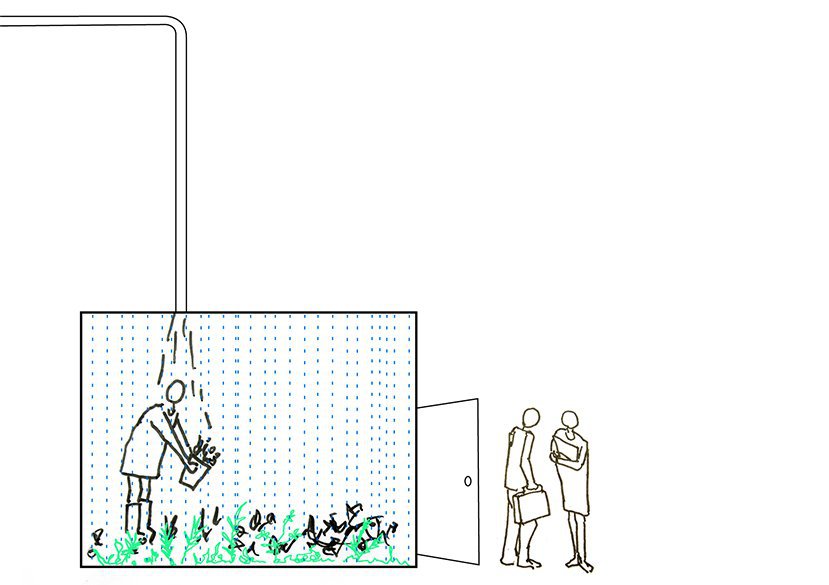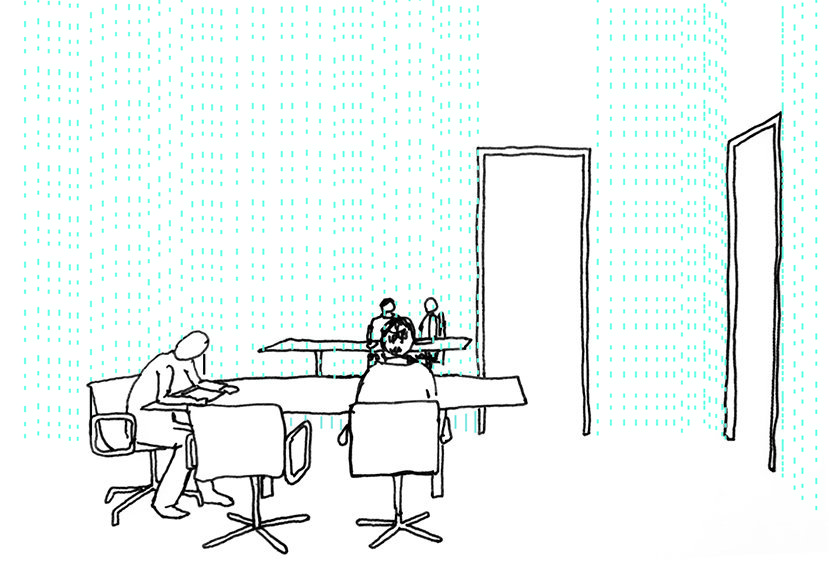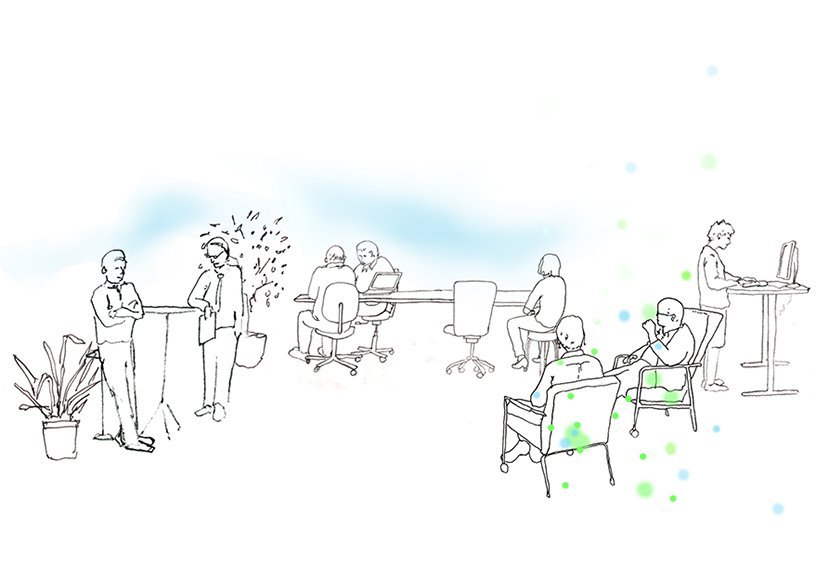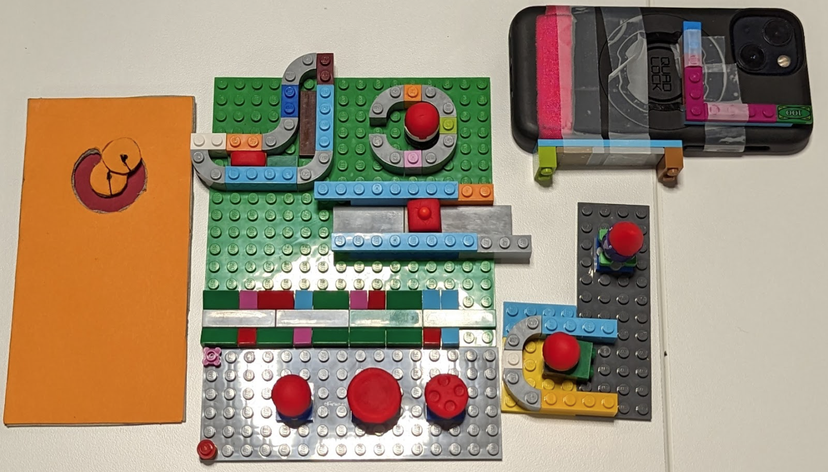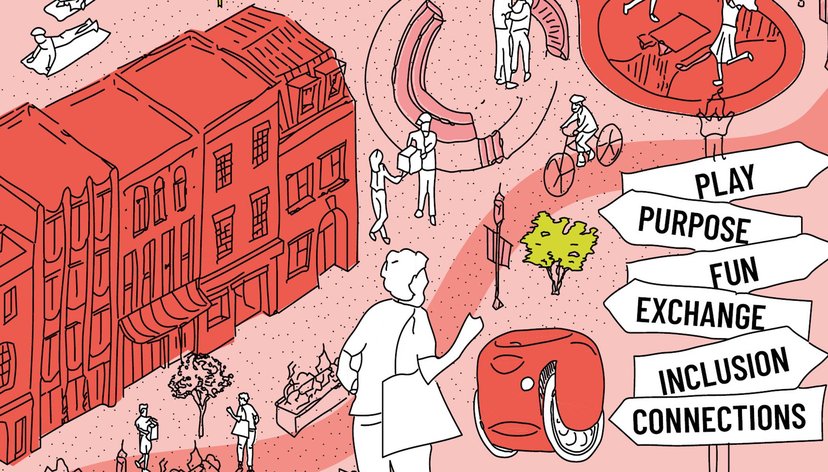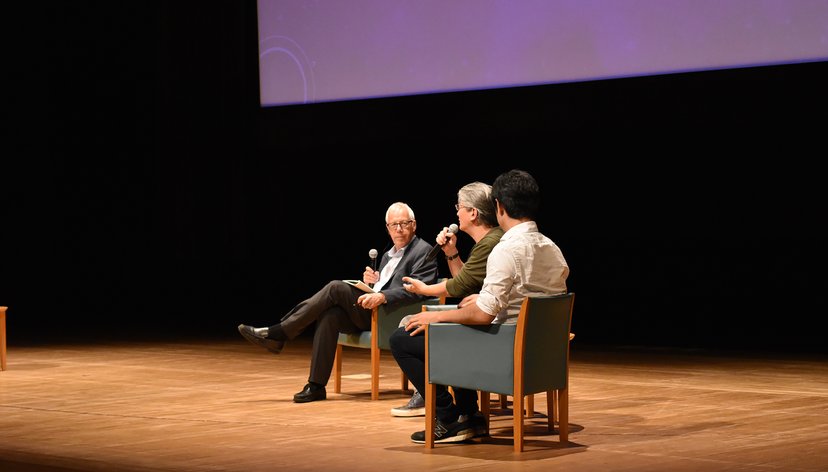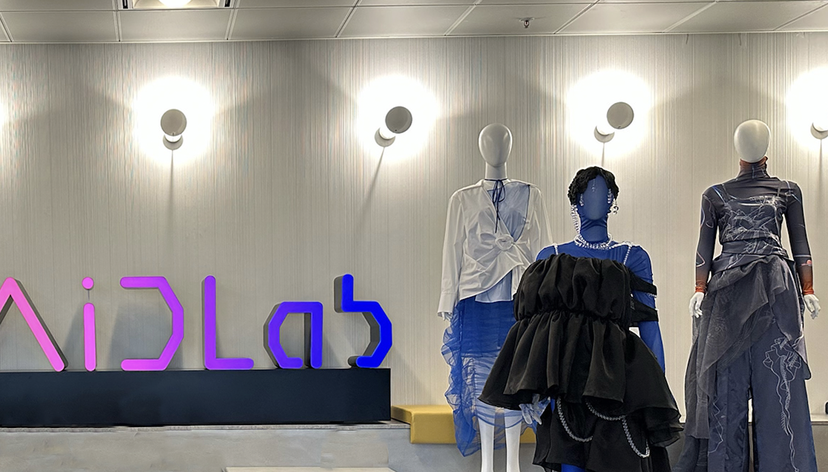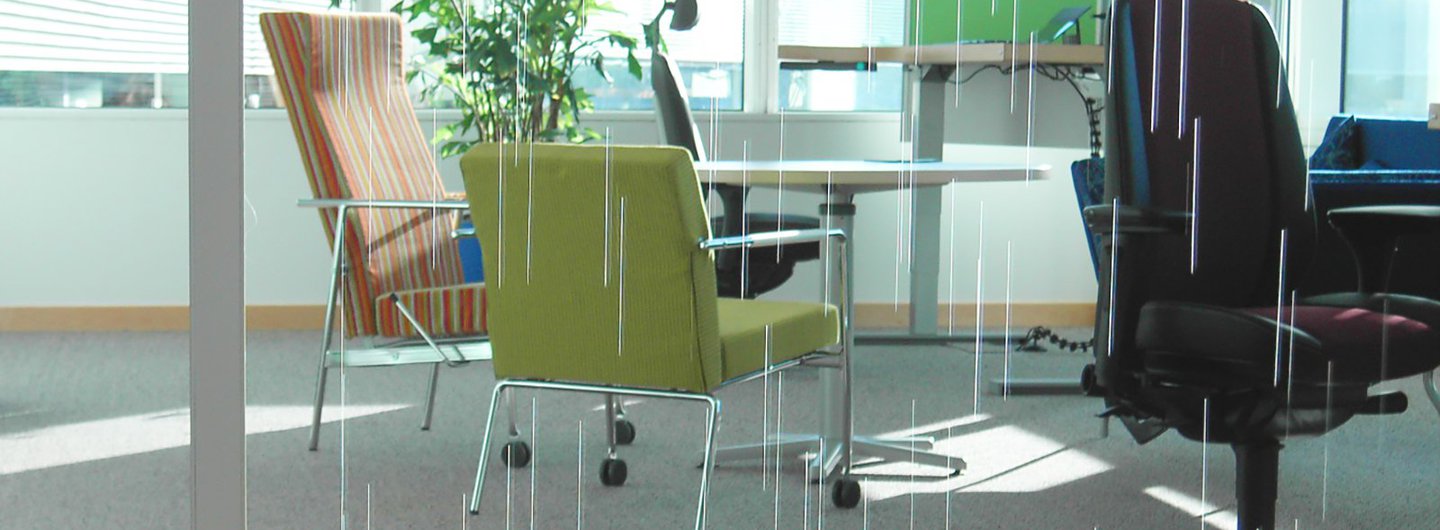
A major study exploring the design of office space for an ageing workforce in the 21st century knowledge economy.
At a glance
- This three-year funded study addressed two key trends in the working world: the ageing of the workforce and the rise of a knowledge-based economy
- Responding to the emerging requirements of older knowledge workers, the Welcoming Workplace project looked at older workers occupying various positions in three ‘knowledge industries’ (pharmaceuticals, technology and financial services) in the UK, Japan and Australia.
- The report produced highlighted significant shortcomings in open-plan working, such as spaces for concentration and contemplation, which had been the dominant trend in office design in recent years
- “This study explores the needs and aspirations of an emerging workforce of people aged 50 and over, who will rely on their knowledge and experience to have extended working lives. The study demonstrates that different types of work settings are required beyond the standard open-plan office.” (Professor Jeremy Myerson, Project Lead)
Key details
Gallery
More information
The challenge
In the early decades of the 21st century, growing numbers of older office workers will not retire at the expected age but will remain at work for longer, many of them on a consultancy, special-project or part-time basis. Several factors are driving this trend: a shortfall in pension funds; a management emphasis on retaining knowledge and experience built up over many years; age and disability discrimination legislation which provides more protection to older workers; and, above all, the fundamental demographic facts of population ageing.
At the same time as the age balance of the workforce is changing, the type of work we do in offices is changing too. Today, much of the repetitive process work that once occupied large numbers of staff is done by computers. The contemporary office is increasingly the setting for a new type of work for which the most common term is ‘knowledge work’. This type of work depends not so much on formula and process within a supervised hierarchy but on applying theoretical knowledge and learning as part of a culture of collaboration, initiative and invention.
Taken together, the ageing of the workforce and emergence of new patterns of knowledge work present a critical challenge to current practice in office design, which has traditionally been geared to younger workforces rather than older ones and simple, linear, process-driven work patterns rather than more complex knowledge-based ones.
Our approach
Responding to the emerging requirements of older knowledge workers, the Welcoming Workplace project looked at older workers occupying various positions in three ‘knowledge industries’ (pharmaceuticals, technology and financial services) in the UK, Japan and Australia.
The research found that key aspects of knowledge work, such as individual concentration, were poorly catered for by the general design of the open-plan office.
Current design tends to focus on the need for collaboration and teamwork, yet neglects the fact that knowledge work requires intense periods of deep concentration and thinking, often undertaken alone.
For older knowledge workers, the need for spaces to concentrate on work was mirrored by the need for suitable space to contemplate, to think and physically recuperate during the working day.
Outputs
The project generated its own intellectual property and registered designs, including a Rain Curtain, Office Garden and Dynamic Lighting system - innovations that can be licensed by industry.
A UK regional seminar tour with exhibition was sponsored by furniture company Kinnarps and accredited for Continuing Professional Development by the Royal Institute of British Architects (RIBA).
The project achieved a strong degree of public engagement and industry uptake. A Welcoming Workplace Design Guidance document (IBSN:78-1-905000-76-0) was endorsed by the British Council for Offices (BCO) and its findings given to the team writing the BCO's new 2009 Office Specification Guide, the 'bible' of the industry which sets the design specification for all new workplaces. Gower commissioned a book entitled 'New Demographics New Workspace: Office Design for the Changing Workforce' (IBSN 978-0-566-08854-4) based on the project, to be aimed at a general management and business audience.
The study generated considerable interest internationally in government circles, as the growing burden of ageing populations and the issue of extended working lives began to dominate political agendas. The research team was invited to give evidence on inclusive workplace design to the Department for Work and Pensions, which was writing a major cross-Departmental strategy document on the ageing society for Government ministers to implement. In Singapore, Professor Jeremy Myerson joined a high-level forum on 'Reinventing Retirement: Employment and Active Engagement Beyond 50' attended by Singaporean Prime Minister Lee Hsien Loong, and held a seminar with Singapore's Building and Construction Authority. In Melbourne, he addressed regional government officials on the role of inclusive design in employing older people.
Collaboration with academics at Kyushu University, Japan and University of Melbourne, Australia, helped to build an international network of researchers around the subject and make the study more attractive to industrial partners and policymakers. Welcoming Workplace succeeded in articulating issues around future workforce planning and productivity in a way that makes the study relevant globally, a status reinforced by such activities as international conference invitations to launch the Welcoming Workplace design guidance in the US (Build Boston Nov 2008) and Singapore (January 2009), and by a workshop at the international Include 2009 conference at the RCA.
Ask a question
Get in touch to find out more about our research projects.
[email protected]

